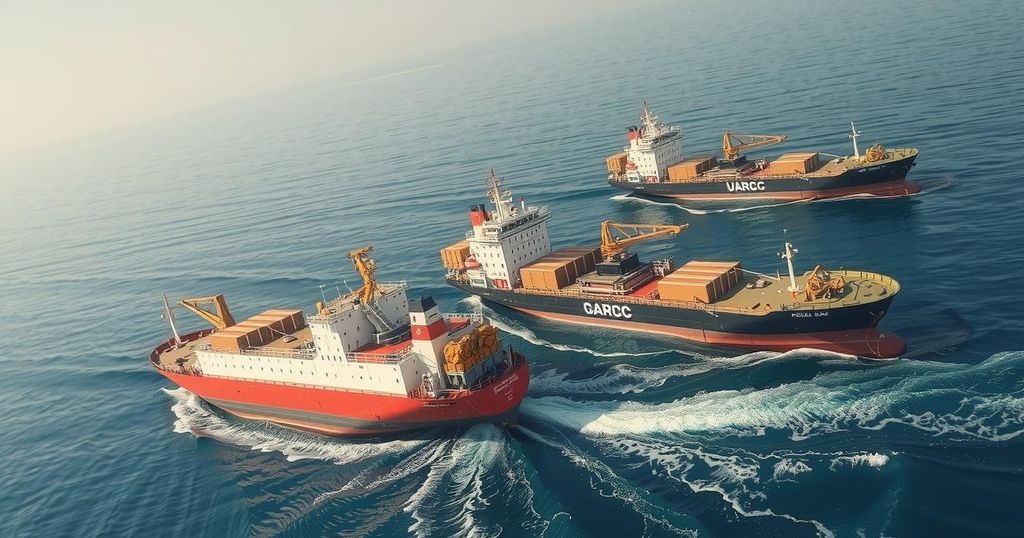Turkey and Qatar are sending two power ships to Syria to boost electricity supply after US sanctions were eased following Bashar al-Assad’s ousting. The ships will provide 800 megawatts of power, essential for addressing extensive outages. The initiative reflects international aid efforts amid Syria’s ongoing energy crisis, exacerbated by years of civil war and destruction.
On Tuesday, Syria’s electricity chief announced that Turkey and Qatar would be sending two power ships to enhance the nation’s electricity supply. This decision follows the United States’ recent easing of sanctions after President Bashar al-Assad was ousted, marking a significant shift in the political landscape. Following over 13 years of civil unrest, which severely damaged Syria’s power infrastructure, including energy pipelines and power stations, the country has been struggling with prolonged electricity outages of up to 20 hours daily.
Khaled Abu Dayy, the head of Syria’s national electricity company, disclosed to the state news agency SANA that these two ships would collectively produce 800 megawatts of electricity, amounting to half the current national production. He also mentioned that efforts are underway to secure power lines necessary for transporting this electricity from the ships’ docking locations, although specific details regarding these locations were not provided.
Moreover, the reopening of embassies in Damascus by both Qatar and Turkey signifies their increasing involvement in Syria, particularly following Assad’s recent relocation to Moscow after his ousting. Historically, Turkey has supported Hayat Tahrir al-Sham rebels, who played a crucial role in the offensive against Assad, thus establishing a direct line to the new government in Damascus. In December, a delegation from Turkey’s energy ministry visited Syria, indicating their commitment to addressing the energy crisis.
Notably, Turkey is currently hosting nearly three million Syrian refugees, many of whom fled during the civil conflict that began in 2011. The overthrow of Assad has fostered hope among these refugees that they may soon return to their homeland. While the transitional government in Damascus is advocating for the lifting of sanctions to facilitate reconstruction, the international community remains cautious. Many nations, including the United States, are awaiting indications of how the new authorities will govern before making any decisions regarding the removal of restrictions. The civil war, which has resulted in the deaths of over half a million individuals, has devastated Syria’s economy, with an estimated $100 billion in losses reported in the energy sector alone since 2011.
In summary, the sending of power ships from Turkey and Qatar to Syria represents a critical step towards rebuilding the nation’s severely damaged energy infrastructure. This move, alongside the United States’ sanction easing, may pave the way for improved living conditions in Syria as the nation attempts to recover from years of conflict.
The topic concerns the current energy crisis in Syria, exacerbated by over 13 years of civil war that has led to insufficient electricity supply and crumbling infrastructure. The recent political shifts following the ousting of President Bashar al-Assad have prompted a reconsideration of sanctions by the United States, allowing humanitarian aid such as electricity and fuel to reach Syria. The involvement of Turkey and Qatar marks a significant international engagement aimed at stabilizing and reconstructing the war-torn nation and enhancing the quality of life for its citizens.
In conclusion, the deployment of power ships from Turkey and Qatar represents a significant commitment to alleviating Syria’s energy crisis and restoring its electricity infrastructure. The easing of sanctions by the United States facilitates this support, potentially leading to improvements in basic services for the Syrian population. However, the international community’s cautious approach to lifting sanctions signals the need for careful monitoring of the new authorities’ actions in Syria.
Original Source: www.barrons.com






